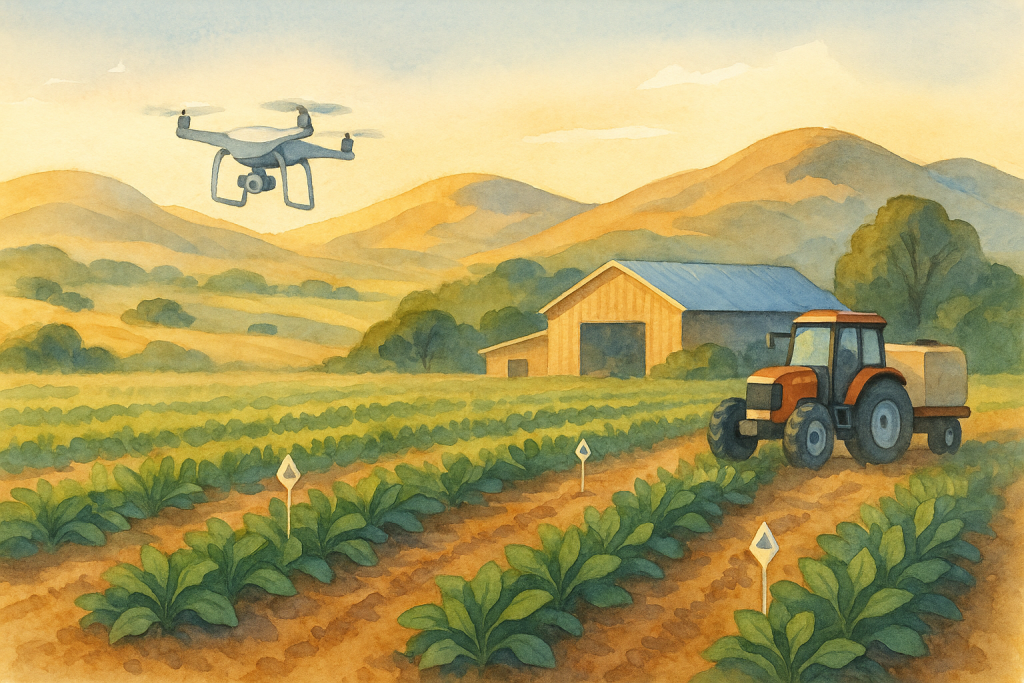The rise of agritech startups in Australia is reshaping the landscape of the agricultural industry. With a focus on integrating technology with agriculture, these innovations aim to enhance productivity and efficiency. Agritech startups are driving significant change, offering solutions that tackle issues like climate change, land conservation, and food security.
As the demand for smarter and more sustainable farming practices increases, investments in these startup enterprises are climbing, indicating a promising future for the rural sector. Understanding the current landscape and potential opportunities within this field is essential for stakeholders and investors alike.
The current landscape of agritech in Australia

Australia’s agricultural industry is going through a transformative phase with the advent of agritech. This burgeoning sector encompasses technologies that improve farming processes, enhance yields, and promote sustainable practices. Startups are at the forefront of this revolution, utilizing innovations such as precision agriculture, drone technology, and data analytics to revolutionize traditional farming methods.
Investment in this sector is gaining momentum as more investors recognise the potential for growth and innovation. These enterprises are positioned to address pressing global challenges, striving to ensure food security and sustainability in agriculture, which is crucial for Australia’s economy and environmental health.
Technological advancements driving change
Technological advancements are a significant driver of change within the agriculture sector. Innovations such as Internet of Things (IoT) devices, robotics, and artificial intelligence are enabling farmers to gather and analyse data more efficiently. Precision agriculture technologies, for instance, allow for accurate monitoring of soil conditions and crop health, improving decision-making and resource management.
Drones and satellite imagery offer real-time insights into field conditions, helping farmers optimize their operations. These advancements not only increase productivity but also reduce environmental impact by minimizing waste and conserving resources, making them attractive investments for those looking at the future of farming.
Government initiatives and support
The Australian government plays a pivotal role in fostering the growth of agritech startups. By actively promoting innovation and providing financial support, the government aims to position Australia as a leader in agricultural technology. Initiatives such as grants, tax incentives, and research funding help reduce the risks associated with developing new technologies, encouraging more entrepreneurs to enter the field.
Additionally, partnerships between government bodies, research institutions, and private companies further bolster the innovation ecosystem, providing startups with the necessary resources to scale their solutions. This supportive environment is crucial for driving continued investment and development in the agritech sector.
Opportunities for investors in the rural economy
Investments in agritech startups present a wealth of opportunities for investors aiming to capitalise on the rural sector’s potential. As the global population grows and demand for food increases, the need for more efficient and sustainable agricultural practices becomes paramount. Agritech solutions addressing these needs are in high demand, offering investors attractive returns on investment.
Moreover, the rural economy stands to benefit substantially from these technological advancements, with improvements in productivity and sustainability driving economic growth. By investing in agritech, stakeholders can not only achieve financial gains but also contribute to the long-term viability and health of the agricultural sector.
Addressing environmental challenges
Environmental challenges such as climate change, water scarcity, and land degradation are pressing issues facing the agricultural industry. Agritech startups are uniquely positioned to address these challenges through innovative solutions. By developing technologies that promote sustainable farming practices, these enterprises help mitigate environmental impact while ensuring food security.
For instance, technologies that optimize water usage and reduce chemical runoff are critical in preserving natural resources. Furthermore, startups working on climate-resilient crops and carbon-neutral farming methods contribute to the overall sustainability of the industry. Investing in these innovations not only serves economic interests but also plays a vital role in safeguarding the planet for future generations.
Fostering regional economic development
Investment in agritech startups also catalyzes regional economic development. By expanding job opportunities and enhancing skill development in rural areas, these enterprises help stimulate local economies. The adoption of cutting-edge technologies in agriculture encourages younger generations to pursue careers in the sector, bringing fresh perspectives and expertise.
Regional businesses, in turn, benefit from the increased demand for support services and infrastructure development. As agritech continues to evolve, the collaboration between urban and rural stakeholders becomes increasingly important, fostering a more integrated and resilient economic landscape. These synergies are vital for ensuring the sustained growth and vitality of Australia’s agricultural industry.
The rise of agritech startups represents a significant opportunity for Australia’s rural sector, promising to transform agriculture through innovation and technology. By investing in these innovative solutions, stakeholders can help drive sustainable agricultural practices, address environmental challenges, and bolster economic development in rural areas.



